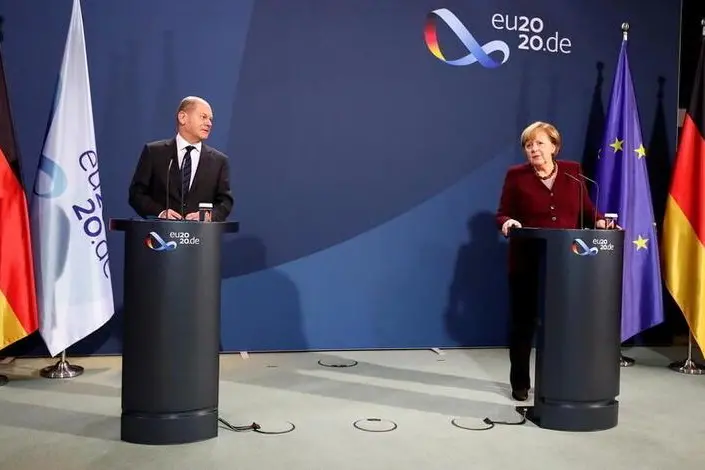PHOTO
NAPLES- Environment and energy ministers from the Group of 20 rich nations were making little progress on Thursday on how to reach climate goals, officials said, with a cluster of countries resisting any firm commitments.
The G20 meeting in Naples discussed biodiversity and the natural environment on Thursday, while energy and climate change will be on Friday's agenda. Diplomats have struggled for days to find meaningful common ground on both topics.
Italy, which holds the rotating G20 presidency this year, said the environment communique had finally been agreed to the "great joy" of all 20 countries after "weeks of negotiations and a two-day non-stop session".
It will be published later ahead of a news conference by Italian Ecological Transition Minister Roberto Cingolani.
Friday's statement, directly addressing climate change commitments, is likely to prove more challenging.
In his address to the G20, seen by Reuters, Argentina's Environment Minister Juan Cabandie called for a "debt swap" whereby a portion of the debt of developing countries be forgiven so that they can fund their ecological transition.
The G20 meeting is seen as a key intermediate stage ahead of global climate talks known as COP 26 to be held in Glasgow in November.
The urgency of climate action has been brought home this month by deadly floods in Europe, fires in the United States and sweltering temperatures in Siberia, but countries remain at odds on how to pay for costly policies to reduce global warming.
Brazil, Saudi Arabia and Indonesia were among countries continuing to resist attempts by the Italian presidency to beef up the language in the G20 statements, officials said.
"It looks like there will be a complete lack of any commitments on money," said Oscar Soria of the U.S-based online activist group Avaaz.
"The north is telling the south 'we need to protect the environment' and the south is saying 'we need money for that', and the Italian presidency isn't proving very good at getting everyone on the same page," he said.
Developed countries agreed at the United Nations in 2009 to together contribute $100 billion each year by 2020 in climate finance to poorer countries, many of whom are grappling with rising seas, storms and droughts made worse by climate change.
However, that target has yet to be met.
"Financing commitments made by developed countries have not been honoured, affecting trust between parties," said Cabandie.
Barring last-minute progress, it looks unlikely the Naples G20 gathering will make reference to the $100 billion or make any other firm financial commitments.
(Reporting by Gavin Jones; Editing by Bernadette Baum and Crispian Balmer) ((gavin.jones@thomsonreuters.com))





















